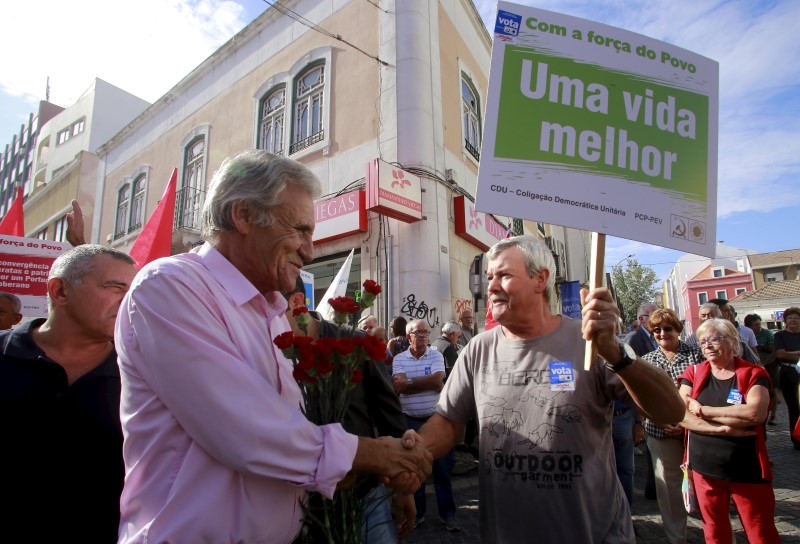By Axel Bugge
LISBON (Reuters) - Portugal's prime minister made a final push on Friday to boost his chances of not only winning this weekend's election, as predicted by opinion polls, but also of securing an absolute majority and a more stable government.
On the last day of campaigning before Sunday's election - Portugal's first since a debt crisis, austerity and a bailout - polls have all given centre-right Prime Minister Pedro Passos Coelho a lead, of between five and 12 points.
His campaign focussing on his record of guiding the country through the crisis and returning it to growth has worked and his Social Democrat-CDS-PP coalition looks set to be returned to power.
But, with up to 15 percent still undecided, both Passos Coelho and his centre-left Socialist opponent Antonio Costa pushed for more support.
"Nobody swaps certainty with uncertainty," Passos Coelho said while campaigning, driving home his message as the candidate of stability.
"Without stability there is no confidence, without confidence there is no investment, without investment there is no job creation," he said. "Whoever wins the election has to govern and I believe we will win."
A win for Passos Coelho would mark a break with other southern Europe countries, such as Spain and Greece, which have seen austerity-minded governments punished at the ballot box.
Costa, who has promised to ease austerity and return more disposable income to families, urged voters to turn out.
"You can count on my support, but everyone's vote is necessary," he said on the campaign trail in northern Lisbon.
The ruling coalition has support of about 38 percent in the polls versus 33 percent for the Socialists and needs about 44 percent for an absolute majority. In the 2011 election, the two parties in the government won a combined 50 percent of the vote.
Political consultancy Eurasia said it had downgraded Portugal's short-term outlook to neutral from positive because the government may have to rely on the Socialists for support to pass policy through the 230-seat parliament.
"The formation of a Social Democrat-CDS-PP minority government remains our central scenario," Eurasia said in a note. "However, recent developments are likely to make for a more fraught, more unstable and possibly short-lived tenure."

Minority government has a dismal history in Portugal. None has survived through its full term since the country returned to democracy in 1974. The last Socialist minority government collapsed in 2011 after having to request the bailout.